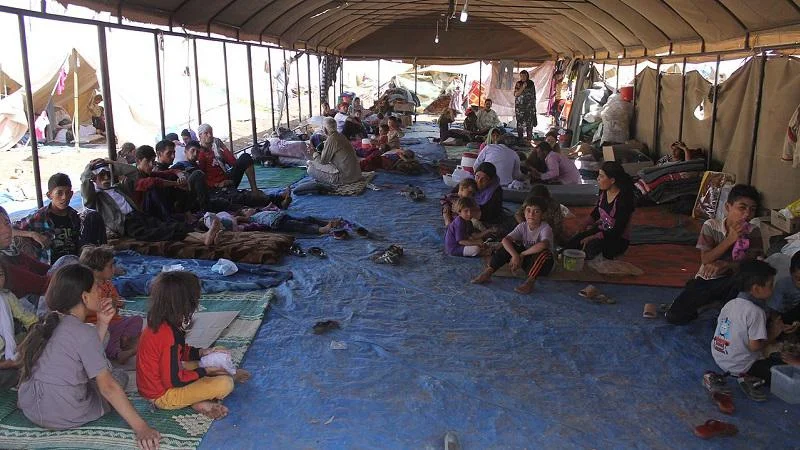LSE survey shows the extent of ISIS violence against Yazidis in Iraq

A study by LSE researcher and colleagues has provided evidence that the so-called Islamic State of Iraq and Syria (ISIS) killed or kidnapped an estimated 9,900 members of the Yazidi religious minority over the course of a few days in August 2014 (margin of error: 7,000 – 13,900).
ISIS subjugated the Nineveh governorate in northern Iraq, home to most of Iraq’s minority groups, during the summer of 2014. These minorities were systematically targeted by ISIS in a violent campaign to ‘purify’ the region of non-Islamic influences. The Yazidis living in the area of Mount Sinjar were singled out for a particularly brutal attack.
In the study, published in PLOS Medicine, the authors reported findings from their retrospective household survey of displaced survivors sheltered in camps in the Kurdistan Region of Iraq. Their fieldwork was carried out in November and December 2015, interviewing a random sample of 1,300 displaced households, to record information about killings and kidnappings of household members.
Using these data, the researchers estimated that ISIS committed severe and sustained acts of violence against 9,900 Yazidis (margin of error: 7,000 – 13,900), amounting to approximately 2.5 per cent of the entire Yazidi population of Sinjar at the time of the attack.
Of this total, an estimated 3,100 Yazidis were killed (margin of error: 2,100 – 4,400), with nearly half of them executed by gunshot, beheading or being burned alive, while the remaining victims died from lack of water and food or injuries during the ISIS siege on Mount Sinjar. The researchers estimated that 6,800 Yazidis were kidnapped (margin of error: 4,200 – 10,800), with over one third still missing at the time of the survey. Reports from escapees documented torture, sex slavery and forced religious conversion once kidnapped.
The researchers found that Yazidis were likely to be targeted irrespective of age and sex, but children were disproportionately affected. Children accounted for nearly all those who died on Mount Sinjar during the ISIS siege, and were also much less likely to escape captivity following kidnapping compared to adults.
The authors suggested that their analysis may have underestimated the actual toll of killings and kidnappings because of the unknown number of families who were captured in their entirety with no one surviving to report.
Dr Valeria Cetorelli, Research Officer at the LSE Middle East Centre and lead author of the report, said: "Our survey documents the severity of the ISIS attack against the Yazidis and corroborates previous figures reported to the United Nations by local authorities and human rights organisations."
"Combined with other existing evidence, our findings can support a formal genocide investigation by an appointed judicial authority, and highlight the need for the international community to keep attention focused on the rescue, assistance and protection of the Yazidi community."